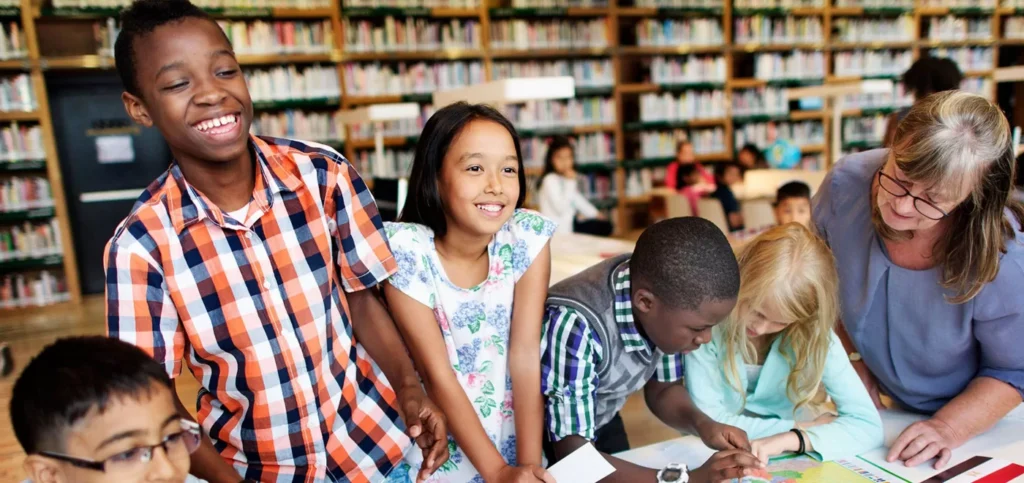Education is constantly evolving, driven by technological advancements, changing societal needs, and a growing emphasis on personalized and future-ready learning. In this article, we will explore the emerging trends and innovations in education that are shaping the future of learning in comparative contexts.
Education plays a crucial role in preparing individuals for the challenges of the future. As the world becomes increasingly interconnected and knowledge-driven, educators and policymakers are seeking innovative approaches to enhance the learning experience and equip students with the necessary skills. Let’s delve into some of the key trends that are transforming education.
Technological Advancements in Education
Integration of Artificial Intelligence (AI)
Artificial Intelligence (AI) is revolutionizing education by offering personalized learning experiences. AI-powered systems can analyze student data, identify learning patterns, and provide targeted recommendations. This enables educators to cater to individual needs and optimize instructional strategies.
Virtual Reality (VR) and Augmented Reality (AR) in Education
Virtual Reality (VR) and Augmented Reality (AR) technologies have the potential to create immersive learning environments. Students can explore historical sites, simulate science experiments, or engage in interactive storytelling, enhancing their understanding and retention of complex concepts.
Gamification in Learning
Gamification introduces game elements and mechanics into the learning process, making it more engaging and enjoyable. By incorporating rewards, challenges, and progress tracking, gamified learning motivates students and fosters a sense of achievement, leading to increased knowledge retention.
Personalized Learning

Adaptive Learning Systems
Adaptive learning systems leverage technology to provide personalized learning paths based on individual strengths, weaknesses, and learning styles. These systems use algorithms to analyze student performance and deliver customized content and assessments, ensuring maximum learning efficacy.
Individualized Learning Paths
Individualized learning paths empower students to learn at their own pace and explore subjects of interest. With access to a wide range of educational resources and tools, learners can tailor their educational journey according to their unique needs and aspirations.
Data-Driven Instruction
Data analytics and learning analytics enable educators to make informed decisions about instructional strategies and interventions. By collecting and analyzing student data, teachers can identify areas where students require additional support and provide targeted interventions to optimize learning outcomes.
Blended Learning and Online Education
Benefits of Blended Learning
Blended learning combines traditional classroom instruction with online learning experiences. It offers flexibility, personalized pacing, and increased access to educational resources. Blended learning models also promote collaboration, critical thinking, and digital literacy skills.
Online Learning Platforms
Online learning platforms provide a wealth of educational materials and interactive tools that can be accessed anytime, anywhere. These platforms offer diverse courses, enabling students to explore a wide range of subjects beyond the traditional curriculum.
Massive Open Online Courses (MOOCs)
MOOCs have gained popularity as a form of online learning that allows learners to enroll in courses offered by renowned institutions and experts worldwide. MOOCs provide access to high-quality education and foster a culture of lifelong learning.
Collaboration and Global Connectivity
Collaborative Learning Environments
Collaborative learning environments promote teamwork, communication, and problem-solving skills. By engaging in group projects, discussions, and peer-to-peer learning, students develop essential collaborative skills needed in the future workplace.
International Collaborations and Exchanges
Global collaborations and exchanges facilitate cultural understanding and enable students to gain insights into different perspectives. Virtual exchanges, international partnerships, and joint research projects enhance cross-cultural competence and global citizenship.
Global Digital Classrooms
Digital platforms and video conferencing tools connect students and educators from different parts of the world, creating global digital classrooms. These classrooms foster cultural exchange, knowledge sharing, and collaborative learning experiences across borders.
STEM Education and Coding
Importance of STEM Education
STEM (Science, Technology, Engineering, and Mathematics) education equips students with critical thinking, problem-solving, and analytical skills. It prepares them for careers in high-demand fields such as robotics, artificial intelligence, and data science.
Coding and Computational Thinking
Coding and computational thinking are essential skills for the digital age. By learning to code, students develop logical reasoning, creativity, and problem-solving abilities. Coding education empowers students to become creators of technology rather than passive consumers.
Robotics and Automation
Robotics and automation technologies provide hands-on learning experiences that integrate science, engineering, and technology. Students can design, build, and program robots, fostering creativity, innovation, and an understanding of real-world applications.
Soft Skills and Future-Ready Education
Critical Thinking and Problem-Solving
Critical thinking and problem-solving skills are vital for navigating complex challenges in the future. Educational approaches that encourage inquiry-based learning, analysis, and evaluation enable students to develop these essential skills.
Communication and Collaboration Skills
Effective communication and collaboration are essential in a globally connected world. Education should emphasize oral and written communication skills, teamwork, and cross-cultural understanding to prepare students for diverse work environments.
Emotional Intelligence and Resilience
Emotional intelligence, including self-awareness, empathy, and resilience, plays a crucial role in personal and professional success. Educators are increasingly recognizing the importance of fostering emotional intelligence in students to promote well-being and positive relationships.
Assessment and Evaluation
Adaptive Assessments
Adaptive assessments adapt to the student’s level of knowledge and skills, providing personalized feedback and identifying areas of improvement. These assessments help educators gauge individual progress and make data-driven decisions to enhance learning outcomes.
Competency-Based Education
Competency-based education focuses on mastering specific skills and knowledge rather than relying solely on traditional grades and assessments. Students progress at their own pace, demonstrating competency in key areas before advancing to the next level.
Learning Analytics
Learning analytics involves collecting and analyzing data to gain insights into student performance and engagement. Educators can leverage these analytics to tailor instruction, identify effective instructional strategies, and provide timely interventions.


